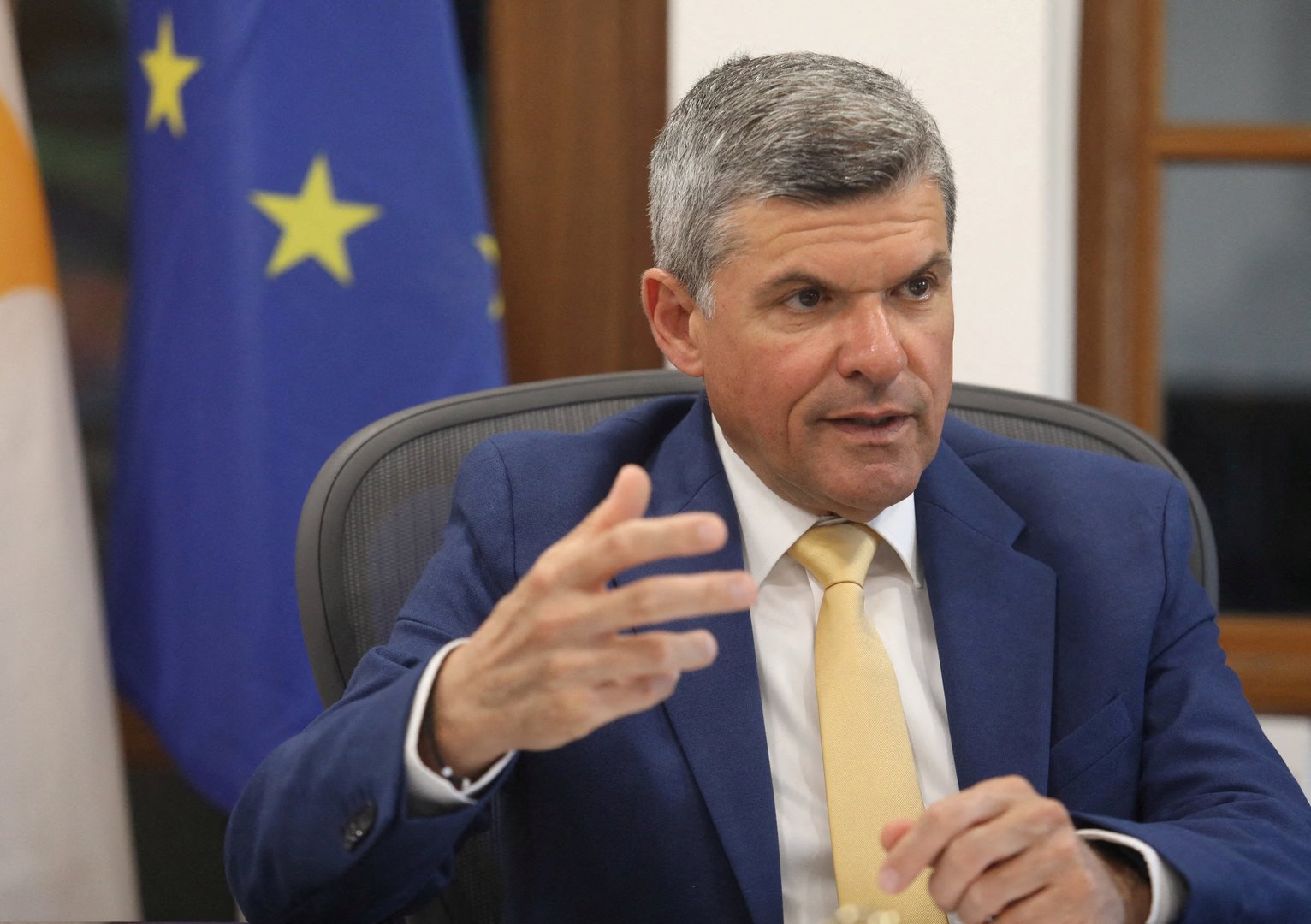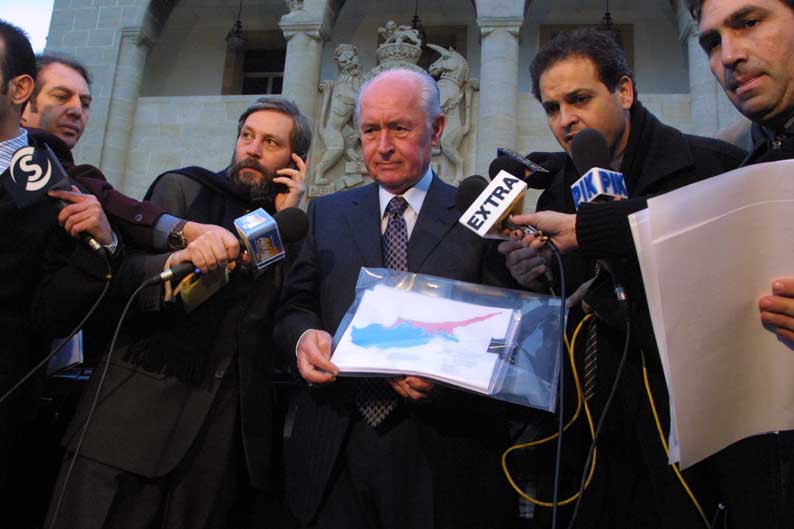Energy Minister George Papanastasiou went to Greece on Friday to discuss the Great Sea Interconnector (GSI) project with his Greek counterpart Theodoros Skylakakis. He told the Cyprus News Agency the main talking point would be the “comments of our advisors, with regard to the Cyprus Republic being a shareholder in GSI.” Papanastasiou said “we will convey the concerns raised by our advisors to establish the positions of the other side,” conceding some of the concerns were very strong and could threaten the consultations. No announcement was made after Friday’s meeting.
The Cyprus government had secured the services of two large US-based firms to help it decide whether it should invest €100m in the project. A legal due diligence report drafted by New York-based law firm Curtis, Mallet-Prevost, Colt & Mossle LLP said: “The Draft Concession Agreement is heavily one-sided in Ipto’s (Greece’s Independent Power Transmission Operator Admie) favour and would create an unnecessary, additional layer of risks for any equity investors in GSI.” Worse still, the terms and conditions proposed by Admie of an equity investment in GSI “are not adequate to attract any serious strategic equity investors considering GSI offers limited profitability upside.”
Put simply, under the current concession agreement the Cyprus government although investing the proposed €100m in the GSI, would have secondary status as a shareholder, with Admie calling all the shots; it would have the role of concessionaire rather than co-owner. Admie, according to the Curtis report, would have the right to approve the GSI’s selection of contractors and have the rights “of ordering changes, suspension and cancellations of any planned works.”
Most worryingly though, “GSI – instead of Admie – would end up absorbing losses and liabilities resulting from cost overruns in the contracts negotiated by Euroasia (previous project owner) and Admie with Nexans and Siemens (and in any future contracts with other project contractors) due to liability limitations protecting contractors, undertakings to compensate contractors for increased costs or contract price increases resulting from work variations as well as any termination payment.” The project owner, Admie would be taking all the decisions but additional costs incurred would be covered by the GSI shareholders.
Understandably, the government seems to be in a quandary over what to do. According to a press report earlier this week, the president and the energy mister want to go ahead with the project but Finance Minister Makis Keravnos has voiced strong reservations. There was speculation that this was the reason the finance ministry, which felt vindicated by the two reports by the advisors, was not represented at Friday’s meeting in Athens. The finance ministry is said to object to the project in its entirety, fearing Cyprus could be exposed to large additional costs.
After the advisors’ reports, the government is under increased pressure to improve the terms and conditions for its participation in GSI, which had been questioned from the start by politicians, economists and media. The project is supported by the European Commission, which wants Cyprus to be connected to the EU power grid via the interconnector that would link the island to Crete. The government also believes the link would reduce the price of electricity. There may also be political reasons such as maintaining good relations with Greece’s government, which is fully behind the project – the Greek state has a 51 per cent shareholding in Admie, which paid more than €30m to take over the EuroAsia Interconnector project.
Although GSI is meant to be a private project, the Cyprus and Greece taxpayers will be contributing towards it via a monthly levy on their electricity bills from next year. The justification for this is that GSI would need to have revenue to secure funding from the banks. Cyprus’ participation in the project is also seen as necessary to help attract investors for the project estimated to cost €1.9bn. When the state that would benefit from the project does not invest in it, attracting investors might be difficult. Admie’s application for a €500m loan submitted to the European Investment Bank (EIB) has still to receive a positive answer.
It is not only the EIB that has concerns about the viability of the project – it had turned down a loan application by EuroAsia. The other consulting firm that issued a report for the government, Charles River Associates, claimed that “it is unclear whether the development and utilisation of GSI will ultimately decrease the cost of electric power for Cypriot consumers.” But if the project does not decrease the cost of electric power, how can it be justified? Why should Cypriot households contribute towards it and the taxpayer put up €100m for the project (that could rise) without being guaranteed cheaper electric power? GSI would enhance Cyprus energy security, but would it be worth the price the taxpayer will be called to pay? And most worrying is that nobody can safely say what this price would eventually be.







Click here to change your cookie preferences